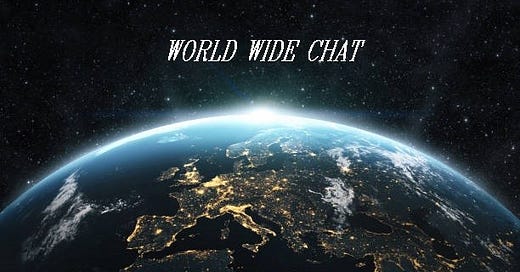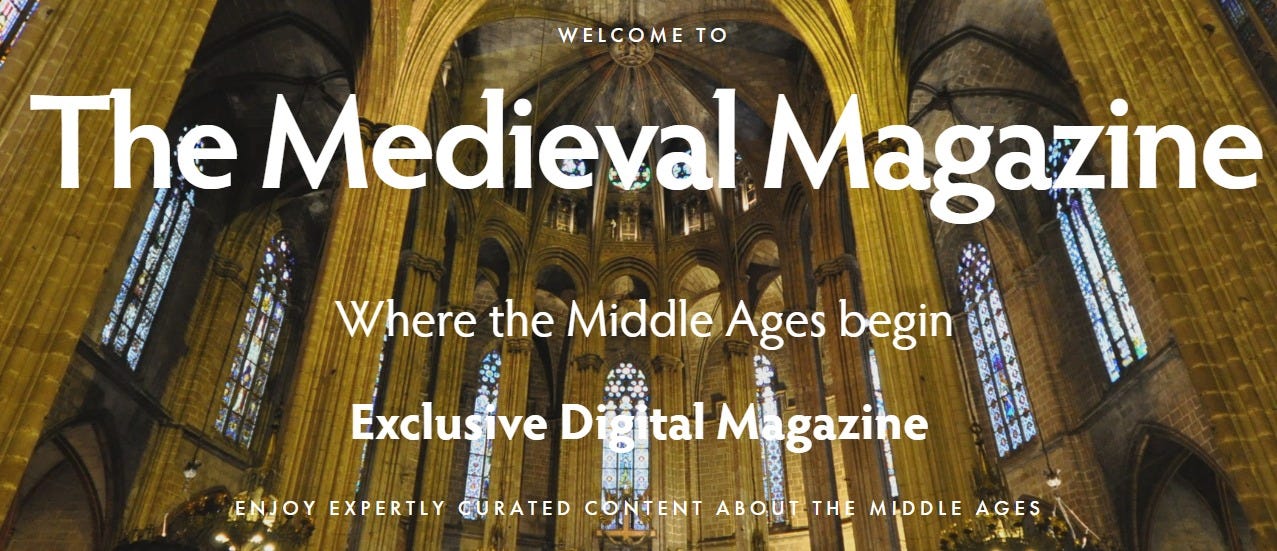Looking Ahead, Falling Behind (Preliminaries)
Last week’s cross-posted guest essay at the The Recovering Academic and a minor mental interruption at my brain threw me a little off schedule but I shall recover thusly:
Today
As you see, the latest paid subscriber Recs & Revs offering, with an array of life-enhancing introductions to sources on the Web and news of our world.
Thursday
The free, somewhat delayed second installment of A Reader’s Review, the commodious reading room in which I share with you all some favorites from my periodical reading over the past month (or so :)
Next Monday
The paid subscriber A Reader’s Review: In Focus, the Review’s companion follow up essay, in which I explore in greater depth some ideas from one of those shared essays or articles, this time titled “Agonies of the Agon.”
Next Thursday
“Reading in the Zone of Interest,” my exploration of ideas in and related to Jonathan Glazer’s Oscar winning film about the Auschwitz commandant and his family. It is not a film review. That is easily dispensed with: I liked it. It’s brilliant. Rather than review the film, I read it, with thoughts about how I believe both the film and its subject, evil, have significantly been misread.
Among the wonders of the World Wide Web is its World Wide Conversation. It isn’t simply interconnected information forming a web of knowledge and ideas. All of that interconnection forms a conversation to which every surfer and reader contributes, at the very least as reader and listener, and further sharer. All this communication flows all around all day long at a speed and volume so far surpassing the analog past, of reading in your lap or at a library, by sitting and talking somewhere with friends, or in the writing of a letter. I don’t need to tell you all the ills, like viruses, carried along over the winds of that WWW.
Wander the web enough and you discover, as well, the sites, of so many kinds, that spring up to try to counteract the spread of misinformation, offer alternatives to information sources that have lost trust for whatever reason.
The Conversation is one example of sites that seek to join scholarly authority to writing for a general audience. Founded in Australia in 2011, it now has multiple national editions. As it says of itself: “Academic rigor, journalistic flair.” The site covers a worldwide range of topics much as a newspaper would but significantly informed by writers with academic expertise:
We are a nonprofit, independent news organization dedicated to unlocking the knowledge of experts for the public good.
The Collector, a younger publication founded in 2019, is similar in spirit, though rather than focusing on news, its daily remit is ancient and modern history, art, and philosophy. The editors explain,
The Collector is a community for scholars, classrooms, and enthusiasts. We broaden our audience's understanding of the humanities through articles and discoveries from ancient history to the modern era. Our interests include ancient through modern philosophy, renaissance paintings to modern sculptures, conquerors, conceptual art, and more.
We aim to be a valued resource in the community by consistently bringing exclusive information our readers care about. Our academic authors, each with their own specialties, are vetted by senior editorial staff to bring factual and original content to our readers.
The Collector is cited by publications including Bloomberg, BBC, Washington Post, Smithsonian, Getty Museum, Wikipedia, and many educational institutions worldwide including student platforms like Google Classroom, Schoology, Seesaw, and others.
Readers of the previous Recs & Revs, #18, may recall that one of its recommendations was Medivalists.net.
Because of my work on The Dream of Don Juan de Cartagena, my novel of the Ferdinand Magellan expedition’s circumnavigation of the earth, I pursued a deeper knowledge of early Renaissance history and culture than I had. But the pursuit of knowledge is always an ever-expanding joy. I found, consequently, that I needed, then wanted, a deeper knowledge of the Middle Ages than I possessed. On and on it goes. One of the editors of the Medievalists.net website is an editor, as well, of . . .
The Medieval Magazine, a richly produced, solely digital publication that declares itself, “Where the Middle Ages begin,” with “expertly curated content.” In cooperation with the World History Encyclopedia, which declares itself “a non-profit organization publishing the world's most-read history encyclopedia,” the magazine has now published 159 issues.
Study of the Middle Ages will quickly enough call attention to the significance of monasticism in the medieval world. Monasteries became important centers for the rescue and preservation of classical knowledge and the writings of antiquity. They were centers, too, for the production of contemporaneous codices, with monks laboring long quiet hours as scribes. I touched on this activity in The Magellanic Diaries 2, “Monk-Time.”
Keep reading with a 7-day free trial
Subscribe to Homo Vitruvius by A. Jay Adler to keep reading this post and get 7 days of free access to the full post archives.










